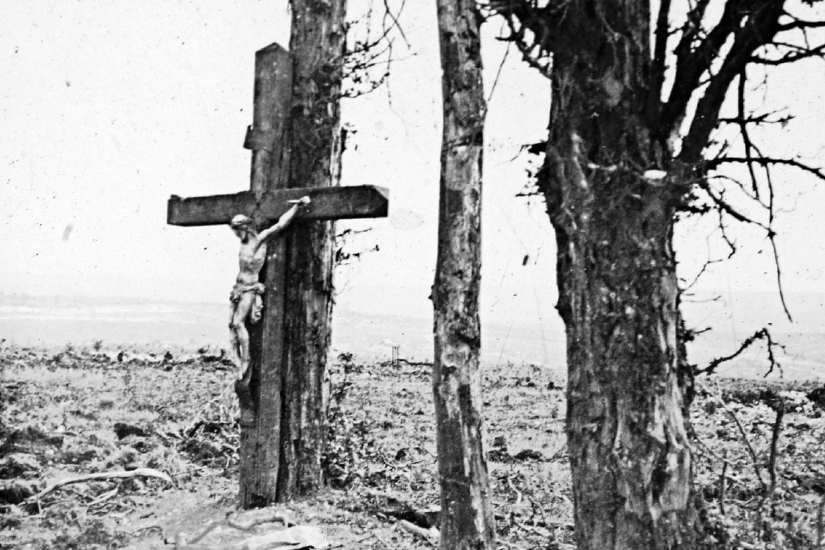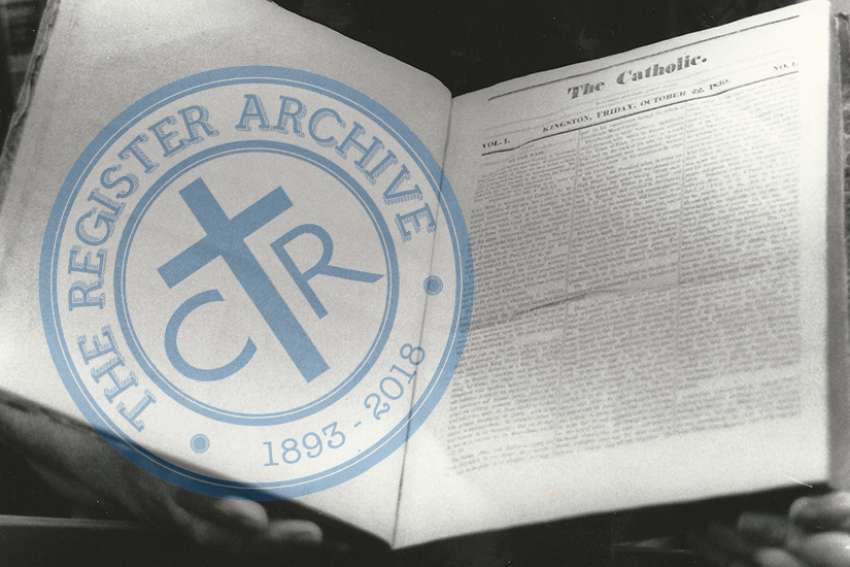We discovered that editors of the day were concerned about the First World War, women’s suffrage and anti-Catholic discrimination. Here are four short editorials from the Jan. 3 issue of 1918.
The year just closed has been a calamitous one for the world. The war, instead of abating, has extended its scope, to take in more of the nations of the world, including the United States.
In view of the practical defection of Russia, the entry of the great American Republic into the conflict on the side of good faith between nations and the maintenance of international law is now a chief source of hope for the final triumph of the cause. But if no way can be found to end the strife but by fighting to the end, it will beyond doubt be a long, agonizing and bloody road, and will leave the world sadly enfeebled at its close.
Whether the peace negotiations begun between Germany and those now in control of affairs in Russia will result in Allies being drawn into the discussions cannot yet be foreseen. Already those negotiations have caused an insistent call for a statement of the Allies war aims. It may be assumed that such an authoritative statement will before long be made, and this is something that has long been needed.
Let us pray devoutly for the restoration of a just and enduring peace!
 An archive picture shows a statue of Christ on the cross on a tree in Fricourt, France, during the First World War. (CNS photo/courtesy of the Collection Odette Carrez via Reuters)
An archive picture shows a statue of Christ on the cross on a tree in Fricourt, France, during the First World War. (CNS photo/courtesy of the Collection Odette Carrez via Reuters)
The introduction of poison into a consignment of dressings laboriously made by Red Cross Workers for wounded soldiers of the United States, and the discovery that ground glass had been freely introduced into food purchased for use in the cantonments, give an idea of the problem that confronts our southern neighbour in its hour of trial. It is a problem that might well dismay a less determined nation, and one which is most difficult to deal with.
The enemy has penetrated the Republic to an appalling extent, and he is still fighting in the same spirit in which he prepared for this war and in which he attacked Belgium.
It is this spirit on his part that has brought about a world sentiment that makes so difficult the restoration of peace.
The State of New York, like the Province of Ontario, recently conferred the vote upon women. In neither, so far as concerns State affairs in the one case and Provincial matters in the other, is there longer any utility in discussing whether this step was a wise one. It is now “up to” our women to exercise intelligently, prudently and conscientiously the influence in public affairs which has been, in many years, thrust upon them without any desire of theirs.
To refrain from doing so would only be to allow those whose ideals of public policy are entirely different from theirs, and often contrary to the best interests of society, to have their way unchecked. To permit this by staying away from the polls would be quite as unwise as to go there and vote for such measures.
And they may be reminded that Catholic women in England are being reminded of the same duty in view of the immediate prospect of the adoption of woman suffrage there.
The old chestnut about the readiness of Catholic priests to indulge in rebellion and store arms in their churches was trotted out as usual during the election campaign.
One man, evidently a novice, overlooked the prudent rule of either keeping to general statements or at least accusing no one near enough to make trouble. He ventured to name a priest of the Diocese of Toronto with the following result:
I, Richard J. Slack of the Township of King, in the County of York, hereby makes the following affidavit apology:
1. That the statement which I made that I was informed on good authority that a box had been shipped to Father Coleman, Schomberg, and which turned out to be rifles, was untrue and unfounded, and I hereby make an apology for such statement and regret very much that the same was made.
2. I hereby authorize the publication of this apology in the Tottenham Sentinel and agree to pay for the publication.
This is only one of ten thousand falsehoods circulated against Catholics. Mr. Slack knew that his hearers were ready to believe anything of the kind. Cardinal John Henry Newman once declared: “Having once been a Protestant, and now being a Catholic . . . no conceivable absurdities can surpass the absurdities which are firmly believed of Catholics by sensible, kind-hearted, well-intentioned Protestants.”
This was said more than sixty years ago. England may have changed in this respect. Ontario has not changed.


